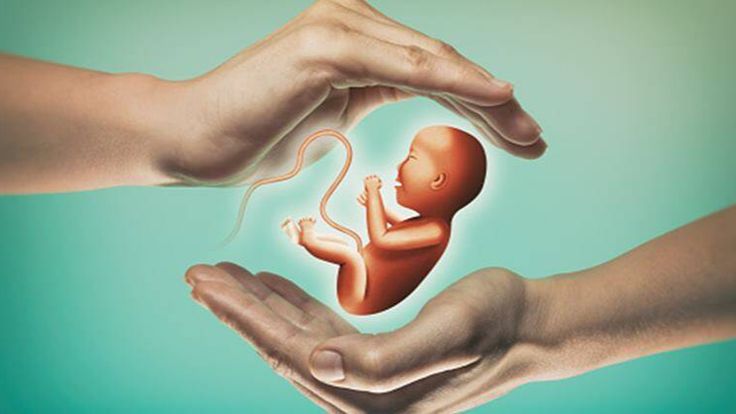Struggling to conceive can be emotionally and physically overwhelming for couples. Thankfully, modern fertility treatments offer hope—and one of the most commonly recommended options is IUI, or Intrauterine Insemination. It’s a simple, minimally invasive, and often successful method to help couples achieve pregnancy without the need for more aggressive procedures like IVF.
At Orange Healthcare, Thergaon, Pimpri-Chinchwad, Dr. Deepali Nirawane specializes in guiding couples through every step of their fertility journey—including personalized assessment, planning, and performing IUI. If you’re curious about what IUI is and whether it’s right for you, this blog has all the answers.
What Is IUI (Intrauterine Insemination)?
IUI is a fertility treatment where sperm is directly inserted into the woman’s uterus during her ovulation window. The aim is to bring the sperm closer to the egg, increasing the chances of fertilization.
Unlike natural conception, where sperm travels from the vagina through the cervix into the uterus, IUI bypasses the cervical barrier and places the sperm closer to the fallopian tubes—right where the egg will be.
The procedure is quick, painless, and usually completed in less than 15 minutes, without the need for anesthesia.
When Is IUI Recommended?
IUI is often the first-line treatment for many fertility issues and is recommended in the following situations:
- Unexplained Infertility
When standard tests show no specific reason for infertility, IUI combined with ovulation-stimulating medications can significantly improve the chances of conception.
- Mild Male Factor Infertility
If the male partner has low sperm count, reduced motility, or mild abnormalities in sperm shape, IUI can help by preparing and concentrating the healthiest sperm for insertion.
- Ovulation Disorders
For women with irregular or absent ovulation due to conditions like PCOS, IUI combined with fertility medications can help time ovulation and insemination perfectly.
- Cervical Factor Infertility
Sometimes, the cervix produces thick mucus that prevents sperm from passing through. IUI bypasses the cervix entirely and places sperm directly into the uterus.
- Ejaculation Issues or Sexual Dysfunction
IUI is useful when there are issues like premature ejaculation, retrograde ejaculation, or other physical/psychological barriers that interfere with intercourse.
- Single Mothers or Same-Sex Couples
Women who are using donor sperm to conceive—either as single mothers by choice or same-sex female couples—often undergo IUI as a first fertility method.
The IUI Process Step-by-Step
Here’s what a typical IUI cycle looks like at Orange Healthcare:
- Initial Evaluation
Both partners undergo basic fertility testing to assess hormone levels, ovarian reserve, semen parameters, and uterine health.
- Ovulation Induction
The woman may receive oral or injectable medications (like Clomiphene or Letrozole) to stimulate the ovaries and produce one or more mature eggs.
- Monitoring Ovulation
Ultrasound scans are used to monitor the size and development of follicles. When ovulation is near, an hCG trigger shot is given to release the egg.
- Sperm Preparation
On the day of IUI, the male partner provides a semen sample. The lab “washes” the sperm to remove impurities and concentrate the most motile, healthy sperm.
- Insemination
Using a soft catheter, the processed sperm is gently inserted into the uterus. The procedure is painless and takes only a few minutes.
- Post-IUI Care
You may be advised to rest briefly after the procedure. A pregnancy test is done approximately 2 weeks later to check for success.
Success Rates of IUI
IUI success rates depend on several factors:
- Woman’s age
- Cause of infertility
- Ovulation quality
- Sperm health
On average, the success rate is 10% to 20% per cycle, with the highest rates in women under 35. Many couples conceive within 3 to 6 IUI cycles.
When IUI May Not Be Suitable
While IUI is effective for many, it’s not recommended in cases such as:
- Severe male infertility (very low sperm count or no sperm)
- Blocked or damaged fallopian tubes
- Advanced maternal age with low egg reserve
- Endometriosis with scarring or adhesions
In such cases, advanced treatments like IVF (In Vitro Fertilization) may be advised.
Conclusion
IUI is a safe, affordable, and minimally invasive fertility treatment that can be life-changing for many couples. If you’ve been trying to conceive for over a year (or 6 months if you’re over 35), it’s time to seek expert help.
At Orange Healthcare, Thergaon, Pimpri-Chinchwad, Dr. Deepali Nirawane provides compassionate and evidence-based fertility care, including complete evaluation, fertility planning, and IUI procedures—all in a supportive and well-equipped environment.
